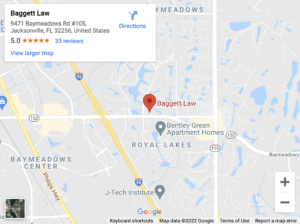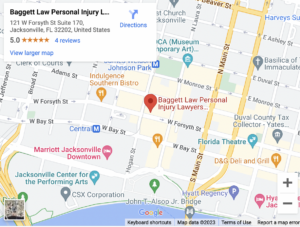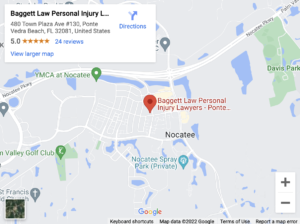
If you suffer an injury caused by the misconduct of someone else, your compensation claim might include many elements. You might qualify for economic damages such as medical bills and lost earnings, for example, as well as non-economic damages such as pain and suffering.
Diminished quality of life is one component of non-economic damages.
What Is “Quality of Life”?

When seeking to define “quality of life,” it is tempting to invoke Supreme Court Justice Potter Stewart’s famous quote (on another subject), “I can’t define it, but I know it when I see it.”
Quality of life refers to general health and well-being as well as the ability to enjoy various activities. It is inherently subjective—you are the only one who knows for sure the extent to which you lost quality of life.
Types of Accidents That Can Result in a Large “Diminished Quality of Life” Claim
A large diminished quality of life claim is more likely to arise from some injuries than from others. One injury might leave you near death for a few days, after which you make a full recovery. Another injury might take you nowhere near the brink of death but leave you permanently disabled.
As between the two, permanent disability is more likely to result in a large diminished quality of life claim. Following is a list of some common injuries that typically generate severe lifestyle restrictions:
- Permanent disfigurement, especially facial disfigurement;
- Amputation of a limb;
- Paralysis;
- Brain damage;
- Childhood injuries that prevent you from developing normally;
- Total or near-total loss of vision (causing the inability to enjoy visual beauty, for instance);
- Total or near-total loss of hearing (resulting in the inability to speak, listen, or listen to music); and
- Back injuries that leave you sedentary or even bedridden.
Ultimately, the effect of injuries on your lifestyle, not the injuries themselves, determines the value of a diminished quality of life claim.
Factors That Apply to a “Diminished Quality of Life” Claim
The following factors, among many others, can determine the value of your diminished quality of life claim.
- How old are you? The younger you are, the longer you have left to love, and the longer you are likely to suffer from a diminished quality of life.
- What were your hobbies before the accident? If all you did was sit on the sofa and watch TV, you might have had little to lose if that’s all you can do now.
- What are your educational background and work history? For example, facial disfigurement could be a disaster if you were a model.
- Can you take care of yourself? A catastrophic injury might prevent you from eating, bathing, or dressing.
- Do your injuries prevent you from having or raising children?
- Can you continue your career, if any? If so, how attached were you to it?
- Did you frequently exercise before your accident? How did your injuries affect your ability to exercise?
- Did you support a family before your accident? Can you do so now?
- Did your injuries affect your ability to engage in intimacy and sexual relations?
- How have your injuries affected your family life? Have they introduced stress or discord?
- Have your friendships suffered because of your injuries?
- Have your injuries resulted in psychological consequences such as depression, panic attacks, or PTSD?
Don’t let the opposing party undervalue any of these losses simply because they are difficult to count.
Limitations on Your Recovery
Unfortunately, certain inherent limitations on a diminished quality of life claim may reduce your recovery. An explanation of four of these limitations appears below.
Comparative Negligence
If you were partly responsible for your own injuries, Florida will apply the principle of modified comparative negligence to reduce your compensation in exact proportion to your fault. There is also a 51% bar to recovery rule.
If you go to court, the court will assign you a percentage of fault between 0% and 100% and either subtract that same percentage from your compensation or bar you from recovering any compensation at all if that percentage reaches 51% or more.
If you settle out of court, the opposing party will estimate how much you are likely to win in court and refuse to offer you any more than that.
Assumption of Risk
Certain activities are inherently dangerous—hang gliding, for example. You are vulnerable to an assumption of risk defense if you knew and appreciated the risks in advance and you decided to participate in the activity anyway.
You are also vulnerable if you signed a waiver of liability. Keep in mind, however, that a waiver of liability for gross negligence is invalid in Florida.
Failure To Mitigate Your Damages
Florida will not award you compensation for any damages that you could have avoided through the exercise of ordinary care.
If your doctor prescribes you certain medication and you neglect to take it, for example, you are responsible for your own losses arising from your “failure to mitigate your damages.”
Negotiating Skill
Your negotiating skill, or the negotiating skill of your lawyer, plays a substantial role in how much your claim is worth. Since the opposing party will certainly attempt to belittle your claim, it is up to you to prevent them from doing so.
In court, quality of life is so intangible and subjective that smooth talk and persuasion play an inordinately large role.
Contact a Jacksonville Personal Injury Attorney
The subjective nature of a lost quality of life claim can encourage the opposing party, especially an insurance company, to use trickery to drastically undervalue your claim.
An experienced Jacksonville personal injury lawyer will be familiar with all of these tricks, and they should know how to counteract them. Initial consultations are typically free of charge.
Contact our personal injury attorneys at Bagget Law Personal Injury Lawyers for more information at (904) 396-1100.




